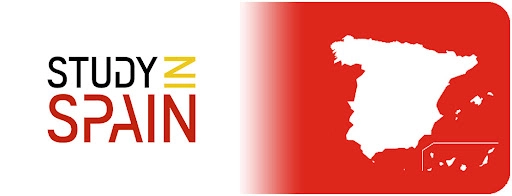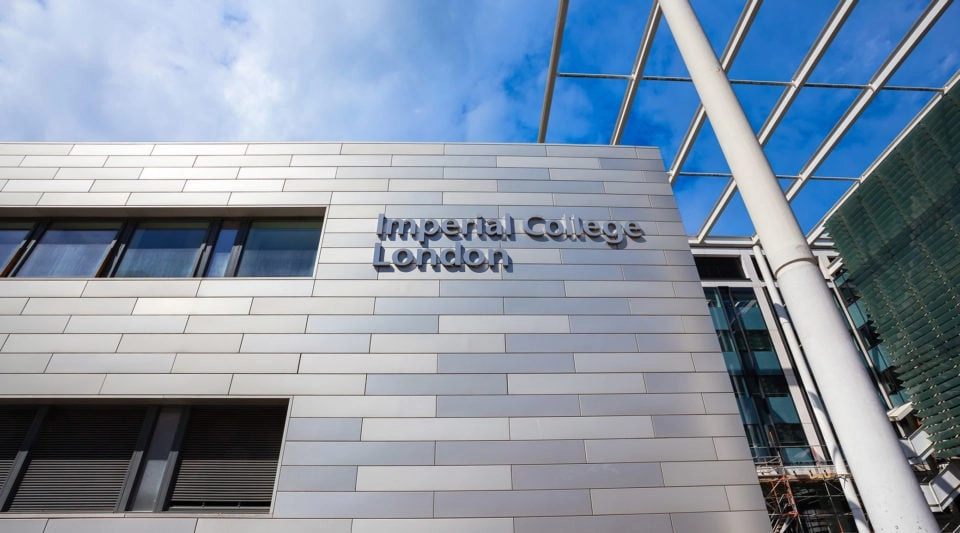
Top MFin Colleges in Spain
MFin Colleges in Spain: A SnapshotThinking about getting your Master of Finance in Spain? Great choice. Spain is now on…
Table of Contents

Here’s a quick summary of the most important facts about the Imperial College MSc Finance program:
Topic | Details |
| University | Imperial College London |
| School | Imperial College Business School |
| Program Name | MSc Finance |
| Location | London, United Kingdom |
| Duration | 12 months (full-time) |
| Start Date | September |
| STEM Designated | Yes |
| Tuition Fee (2024–25) | £44,000 |
| Application Deadline | Rolling admissions – apply early |
| GMAT/GRE | Recommended (average GMAT: 690–700) |
| Work Experience | Not required |
| Employment Rate (3 months after graduation) | Over 90% |
| Average Salary | £55,000–£75,000 |
| Top Employers | Goldman Sachs, Citi, McKinsey, BlackRock |
| Scholarships | Merit-based and need-based scholarships available |
The MSc Finance at Imperial College London is a 12-month, full-time program that teaches students advanced finance skills. It is designed for people who want to build careers in areas like:
You will study both theory and real-world finance. The program mixes classroom learning with hands-on projects, finance labs, and group work.
Students choose Imperial because it offers:
It’s ideal for people who want to enter competitive finance careers with strong technical and business skills
Imperial College London is known around the world for its academic excellence, especially in science, technology, and finance. The Business School has:
Graduates are in high demand by top finance companies, especially in London, Europe, and Asia.

The MSc Finance at Imperial brings together talented students from all over the world. The class is diverse, smart, and focused on careers in top finance roles.
Category | Details |
| Class Size | Around 80–100 students |
| Average Age | 23 years |
| International Students | About 97% of the class |
| Countries Represented | Over 30 |
| Academic Backgrounds | Finance, Business, Economics, Engineering, Math |
| Female Students | Around 40% |
The class is designed to help students learn from each other’s different backgrounds and experiences.
Requirement | Typical Range |
| GMAT | Recommended – average score: 690–700 |
| GRE | Accepted – high quantitative scores preferred |
| GPA | Strong grades from a top university expected |
| Work Experience | Not required, but many have internships or up to 1 year of experience |
Most students have already studied finance or a related subject and have done internships in banks or finance companies.
Because most students are international, the program offers a global experience. Students benefit from:
Imperial also encourages students to take part in real-world consulting projects and investment simulations, often in teams.
The MSc Finance at Imperial College London is one of the best finance programs in the UK and globally. It is highly ranked for its strong academics, career outcomes, and global employer reputation.
Ranking Source | Ranking |
| QS World University Rankings (Finance 2024) | #11 in the world, #3 in the UK |
| Financial Times MSc Finance Pre-experience Ranking (Most recent) | Top 10 globally in past editions |
| QS World Ranking by Employer Reputation (Imperial) | Top 5 in Europe |
Many employers, especially in London and Europe, see Imperial as a target school for hiring.
Feature | Imperial MSc Finance | LSE MSc Finance |
| Program Length | 12 months | 10 months |
| GMAT Requirement | Recommended | Required |
| Location | South Kensington, London | Central London |
| Tech & Data Focus | Strong | Moderate |
| Employer Reach | Strong in finance and fintech | Very strong in banking and consulting |
| Class Size | ~90 students | ~100 students |
Choose Imperial if you want more time, electives, and a stronger mix of finance and tech skills.
Choose LSE if you’re focused on investment banking or consulting and want a shorter, more intense program.
The MSc Finance at Imperial College—also called the Imperial Masters in Finance or MSc Finance Imperial—is very competitive. The Imperial College MSc Finance acceptance rate is low because many strong students apply.
To get in, you need great grades, strong math or finance skills, and a clear career plan. It helps if your profile really stands out.
Metric | Details |
| Estimated Acceptance Rate | 15–20% |
| Applications per Year | Around 2,000+ |
| Class Size | Around 90–100 students |
This means the program accepts only 1 in 5 applicants. To stand out, you need strong academics, a solid GMAT, and a clear reason for choosing finance.
Requirement | Details |
| GMAT | Not mandatory, but strongly recommended |
| Average GMAT | 690–700 |
| GRE | Accepted, strong quantitative score needed |
| When GMAT Helps | If you come from a lesser-known university or non-finance background |
Submitting a strong GMAT score will improve your application significantly, especially if your GPA is average.
Imperial uses rolling admissions, which means:
Best time to apply: October to January
Do This | Avoid This |
| Apply early (before January) | Waiting until the final months |
| Include GMAT if possible | Skipping test without strong academics |
| Highlight finance-related internships | Leaving out practical experience |
| Write a focused personal statement | Writing general or unclear goals |
| Choose strong referees | Avoiding generic references |
To apply for the Imperial MSc Finance—also known as the Imperial MFin or Imperial Master in Finance—you need to meet specific requirements. These include strong grades in a related subject, good test scores like the GMAT or GRE, and proof of English language skills. The MSc Finance Imperial acceptance rate is low, so a strong profile really helps.
You also need to show experience or interest in finance. Your application should include your transcript, resume, and a good personal statement. Keep in mind that the Imperial MSc Finance tuition fee is high, so plan your finances ahead.
Requirement | Details |
| Undergraduate Degree | Required – typically in finance, economics, business, math, or engineering |
| Academic Grades | A strong UK 2:1 or international equivalent (around GPA 3.5/4.0 or higher) |
| GMAT | Recommended – average score is 690–700 |
| GRE | Accepted, with strong quantitative scores |
| Work Experience | Not required, but internships or 1–2 years of experience are helpful |
The admissions team values numerical and analytical skills, so your grades in math and finance-related courses are especially important.
If your degree was not taught in English, you must take an English test.
You may be exempt if your undergraduate degree was fully taught in English.
Imperial looks for students who can succeed in a fast-moving and data-heavy finance program. A strong application includes:
The MSc Finance at Imperial College Business School is a full-time, 12-month program. It combines academic learning with real-world finance tools, projects, and team activities. The curriculum is designed to prepare students for careers in investment banking, asset management, consulting, or fintech.
All students take core modules to build strong financial knowledge.
These classes focus on essential finance topics, data analysis, and decision-making skills used in top financial roles.
Students can also choose from several optional pathways (unofficial specializations) by picking electives focused on specific fields:
Track | Focus Area |
| Financial Engineering | Advanced quantitative finance, programming, risk modeling |
| Asset Management | Portfolio theory, fixed income, hedge funds |
| Risk Management | Credit risk, market risk, financial regulations |
| Corporate Finance | M&A, capital structure, company valuations |
After the core term, you’ll choose from 10+ electives. These allow you to shape your learning based on your career goals.
Some electives are shared with other master’s students, giving you a wider peer network,
Imperial offers access to top finance research tools and labs.
You can apply classroom skills to real-world finance problems through group projects or simulations.
The school’s strong industry connections make learning more practical and career-focused.

Studying in London costs money, and the imperial college MSc Finance tuition fee is a big part of that budget. Luckily, Imperial offers merit-based scholarships and loans. External awards and employer sponsorships can also lower your bill, so explore every option early.
Item | Amount (2024–25) |
| Tuition Fee | £44,000 |
| Estimated Living Costs (London) | £17,000–£22,000 |
| Total Estimated Cost | Around £60,000–£65,000 |
The tuition covers all teaching, access to Imperial’s facilities, career support, and use of financial tools like Bloomberg and Eikon.
Imperial offers both merit-based and need-based scholarships. You’ll be automatically considered for most of them if you apply early.
Scholarship Name | Amount | Notes |
| Imperial Excellence Scholarship | Up to £15,000 | Based on academic and professional excellence |
| Women in Finance Scholarship | Varies | To support gender diversity |
| Africa Regional Scholarship | £10,000 | For students from African countries |
| LATAM, South Asia, and other regional scholarships | £10,000+ | Based on nationality and merit |
| Imperial Loyalty Bursary | 20% tuition discount | For Imperial undergrad alumni |
Tip: Apply early (before January) to be considered for most funding options.
Thanks to Imperial’s strong company links and its London location, graduates find roles across many finance areas. Recent data show lots of imperial college MSc Finance graduates working in USA too. In fact, employers who value global talent often track imperial college MSc Finance graduates USA employment numbers, which keep rising. Popular sectors include:
Metric | Details |
| Employment Rate (3 months after graduation) | Over 90% |
| Average Starting Salary | £55,000–£75,000 |
| Top Hiring Regions | UK, Europe, Asia, Middle East, US |
Top Employers | Common Roles |
| Goldman Sachs, JP Morgan, Barclays | Investment Banking Analyst |
| BlackRock, Fidelity, Amundi | Portfolio Analyst, Buy-Side Analyst |
| McKinsey, BCG, EY | Strategy or Financial Consultant |
| Amazon, Bloomberg, Revolut | Data Analyst, Finance Associate |
Imperial students also land roles at boutique investment firms, hedge funds, and corporate finance teams.
Imperial’s Careers Team helps you with:
You’ll also attend career fairs and finance company presentations on campus throughout the year.
Graduates from the Imperial MSc Finance program work in many areas of finance. Thanks to Imperial’s strong links with companies and its London location, students get hired by top firms across different sectors
Imperial students are often hired by major banks in London and globally.
Students interested in managing money or analyzing investments work in asset management and hedge funds.
Consulting firms value Imperial grads for their analytical and problem-solving skills.
Imperial’s focus on data and technology makes students a good fit for finance roles in tech companies and startups.
There are many great finance master’s programs in the UK. Let’s see how the Imperial MSc Finance compares to other top choices like LSE, Oxford, Cambridge, and LBS.
Feature | Imperial MSc Finance | LSE MSc Finance |
| Program Length | 12 months | 10 months |
| GMAT Requirement | Recommended | Required |
| Focus | Strong on finance and tech | Strong on theory and banking |
| Strength | Fintech, asset management | Investment banking, consulting |
| Teaching Style | Practical + technical | Academic + analytical |
| Career Support | Very strong | Very strong |
| Class Size | ~90 students | ~100 students |
Imperial is great for students who want a balance of finance and technology, while LSE is ideal for those aiming at high-level banking or consulting roles.
School | Focus Area | Best For |
| Imperial | Finance, tech, and analytics | Investment roles, fintech, consulting |
| Oxford (MFE) | Finance, economics, policy | Research, hedge funds, leadership |
| Cambridge (MFin) | Mid-career professionals | Senior finance roles |
| LBS (MSc Finance) | Flexible and career-focused | Early career finance professionals |
Imperial offers a strong STEM-based program with a focus on applied learning and technology — perfect for students who want to stand out in both finance and data-driven industries.
Graduating from the Imperial MSc Finance means you become part of a global alumni network that supports your career growth long after the program ends.
Imperial doesn’t list all graduate names, but many MSc Finance alumni have gone on to:
Many return to campus to speak at events, recruit students, or mentor current learners.
Stat | Details |
| Total Alumni (All Programs) | Over 70,000+ worldwide |
| Alumni Countries | More than 130 nations |
| MSc Finance Alumni | Spread across investment banks, asset firms, and startups |
| Alumni Events | Held in cities like London, Singapore, New York, and online |
| Alumni Tools | Imperial Plexus (alumni network platform), LinkedIn groups, alumni chapters |

What sets the program apart? First, academic depth—professors publish cutting-edge research that feeds into classes. Second, hands-on learning—trading simulations and live projects mirror real markets. Third, career impact—dedicated coaches guide you from day one. Put simply, the Imperial Master in Finance gives you theory, practice, and a global brand name in one year.
Imperial is based in South Kensington, London — close to:
Being in London gives students access to internships, events, networking, and career fairs right in the city.
What makes Imperial different is how much it focuses on practical learning.
This hands-on experience gives you the confidence to step into real jobs after graduation.
Thinking of applying to the Imperial MSc Finance? Use these official pages and student tools to plan your next steps and build a strong application.
Get full details on the course, entry requirements, and curriculum.
🔗 Imperial MSc Finance Program Overview
Learn about fees, payment plans, and available scholarships.
🔗 Imperial MSc Finance – Fees and Funding
Everything you need to know about applying to Imperial.
🔗 MSc Finance Admissions and How to Apply
Read real student reviews and connect with other applicants.
🔗 Reddit – r/gradadmissions
https://www.reddit.com/r/gradadmissions/
